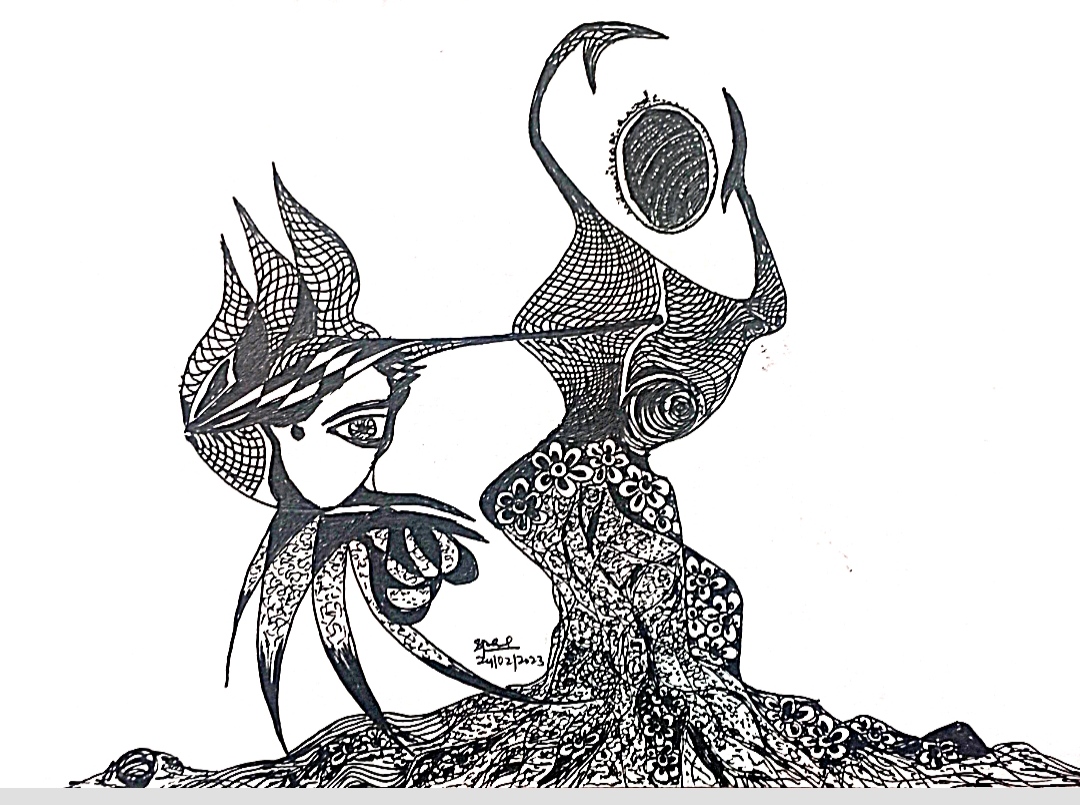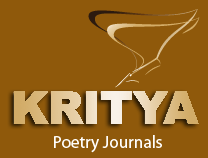
Our Master
William Butler Yeats
William Butler Yeats(13 June 1865 – 28 January 1939) was an Irish poet, dramatist, and mystic who signed his works W. B. Yeats. Although born to an Anglo-Irish mother and father, Yeats was one of the primary driving force behind the Irish Literary Revival and was co-founder of the Abbey Theatre[1]. Yeats also served as an Irish Senator in his later years. He was awarded the Nobel Prize in Literature in 1923 for what the Nobel Committee described as “his always inspired poetry, which in a highly artistic form gives expression to the spirit of a whole nation”.
Brown Penny
I whispered, ‘I am too young,’
And then, ‘I am old enough’;
Wherefore I threw a penny
To find out if I might love.
‘Go and love, go and love, young man,
If the lady be young and fair.’
Ah, penny, brown penny, brown penny,
I am looped in the loops of her hair.
O love is the crooked thing,
There is nobody wise enough
To find out all that is in it,
For he would be thinking of love
Till the stars had run away
And the shadows eaten the moon.
Ah, penny, brown penny, brown penny,
One cannot begin it too soon.
He Wishes For The Cloths Of Heaven
Had I the heavens’ embroidered cloths,
Enwrought with golden and silver light,
The blue and the dim and the dark cloths
Of night and light and the half-light,
I would spread the cloths under your feet:
But I, being poor, have only my dreams;
I have spread my dreams under your feet;
Tread softly because you tread on my dreams.
A Song From ‘The Player Queen’
My mother dandled me and sang,
‘How young it is, how young!’
And made a golden cradle
That on a willow swung.
‘He went away,’ my mother sang,
‘When I was brought to bed,’
And all the while her needle pulled
The gold and silver thread.
She pulled the thread and bit the thread
And made a golden gown,
And wept because she had dreamt that I
Was born to wear a crown.
‘When she was got,’ my mother sang,
I heard a sea-mew cry,
And saw a flake of the yellow foam
That dropped upon my thigh.’
How therefore could she help but braid
The gold into my hair,
And dream that I should carry
The golden top of care?
The Second Coming
Turning and turning in the widening gyre
The falcon cannot hear the falconer;
Things fall apart; the centre cannot hold;
Mere anarchy is loosed upon the world,
The blood-dimmed tide is loosed, and everywhere
The ceremony of innocence is drowned;
The best lack all conviction, while the worst
Are full of passionate intensity.
Surely some revelation is at hand;
Surely the Second Coming is at hand.
The Second Coming! Hardly are those words out
When a vast image out of Spiritus Mundi
Troubles my sight: somewhere in sands of the desert
A shape with lion body and the head of a man,
A gaze blank and pitiless as the sun,
Is moving its slow thighs, while all about it
Reel shadows of the indignant desert birds.
The darkness drops again; but now I know
That twenty centuries of stony sleep
Were vexed to nightmare by a rocking cradle,
And what rough beast, its hour come round at last,
Slouches towards Bethlehem to be born?
September 1913
What need you, being come to sense,
But fumble in a greasy till
And add the halfpence to the pence
And prayer to shivering prayer, until
You have dried the marrow from the bone?
For men were born to pray and save:
Romantic Ireland’s dead and gone,
It’s with O’Leary in the grave.
Yet they were of a different kind,
The names that stilled your childish play,
They have gone about the world like wind,
But little time had they to pray
For whom the hangman’s rope was spun,
And what, God help us, could they save?
Romantic Ireland’s dead and gone,
It’s with O’Leary in the grave.
Was it for this the wild geese spread
The grey wing upon every tide;
For this that all that blood was shed,
For this Edward Fitzgerald died,
And Robert Emmet and Wolfe Tone,
All that delirium of the brave?
Romantic Ireland’s dead and gone,
It’s with O’Leary in the grave.
Yet could we turn the years again,
And call those exiles as they were
In all their loneliness and pain,
You’d cry, ‘Some woman’s yellow hair
Has maddened every mother’s son’:
They weighed so lightly what they gave.
But let them be, they’re dead and gone,
They’re with O’Leary in the grave.
An Irish Airman Foresees His Death
I know that I shall meet my fate
Somewhere among the clouds above;
Those that I fight I do not hate,
Those that I guard I do not love;
My county is Kiltartan Cross,
My countrymen Kiltartan’s poor,
No likely end could bring them loss
Or leave them happier than before.
Nor law, nor duty bade me fight,
Nor public men, nor cheering crowds,
A lonely impulse of delight
Drove to this tumult in the clouds;
I balanced all, brought all to mind,
The years to come seemed waste of breath,
A waste of breath the years behind
In balance with this life, this death.

